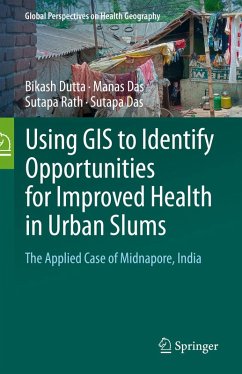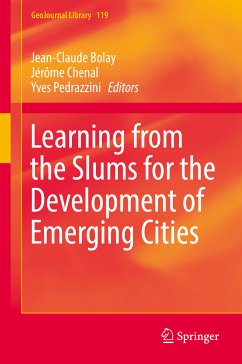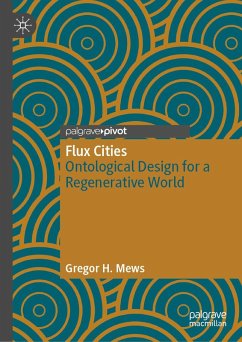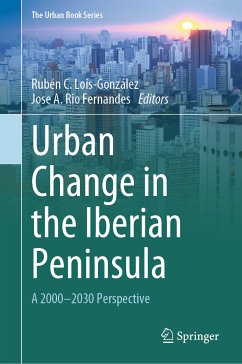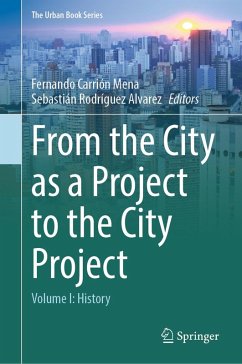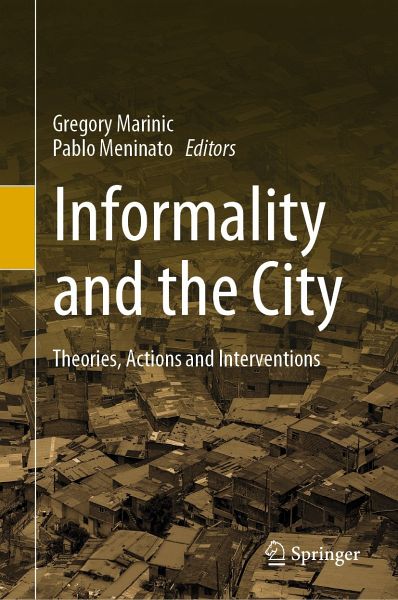
Informality and the City (eBook, PDF)
Theories, Actions and Interventions
Redaktion: Marinic, Gregory; Meninato, Pablo
Versandkostenfrei!
Sofort per Download lieferbar
Statt: 106,99 €**
72,95 €
inkl. MwSt.
**Preis der gedruckten Ausgabe (Gebundenes Buch)
Alle Infos zum eBook verschenkenWeitere Ausgaben:

PAYBACK Punkte
36 °P sammeln!
This book advances the agenda of informality as a transnational phenomenon, recognizing that contemporary urban and regional challenges need to be addressed at both local and global levels. This project may be considered a call for action. Its urgency derives from the impact of the pandemic combined with the effects of climate change in informal settlements around the world. While the notion of "the informal" is usually associated with the analysis and interventions in informal settlements, this book expands the concept of informality to acknowledge its interdisciplinary parameters.The book is...
This book advances the agenda of informality as a transnational phenomenon, recognizing that contemporary urban and regional challenges need to be addressed at both local and global levels. This project may be considered a call for action. Its urgency derives from the impact of the pandemic combined with the effects of climate change in informal settlements around the world. While the notion of "the informal" is usually associated with the analysis and interventions in informal settlements, this book expands the concept of informality to acknowledge its interdisciplinary parameters.
The book is geographically organized into five sections. The first part provides a conceptual overview of the notion of "the informal," serving as an introduction and reflection on the subject. The following sections are dedicated to the principal regions of the Global South-Latin America, US-Mexico Borderlands, Asia, and Africa-while considering the interconnections and correspondencesbetween urbanism in the Global South and the Global North.
This book offers a critical introduction to groundbreaking theories and design practices of informality in the built environment. It provides essential reading for scholars, professionals, and students in urban studies, architecture, city planning, urban geography, sociology, anthropology, cultural studies, economics, and the arts. As a critical survey of informality, the book examines history, theory, and production across a range of informal practices and phenomena in urbanism, architecture, activism, and participatory design. Authored by a diverse and international cohort of leading educators, theorists, and practitioners, 45 chapters refine and expand the discourse surrounding informal cities.
The book is geographically organized into five sections. The first part provides a conceptual overview of the notion of "the informal," serving as an introduction and reflection on the subject. The following sections are dedicated to the principal regions of the Global South-Latin America, US-Mexico Borderlands, Asia, and Africa-while considering the interconnections and correspondencesbetween urbanism in the Global South and the Global North.
This book offers a critical introduction to groundbreaking theories and design practices of informality in the built environment. It provides essential reading for scholars, professionals, and students in urban studies, architecture, city planning, urban geography, sociology, anthropology, cultural studies, economics, and the arts. As a critical survey of informality, the book examines history, theory, and production across a range of informal practices and phenomena in urbanism, architecture, activism, and participatory design. Authored by a diverse and international cohort of leading educators, theorists, and practitioners, 45 chapters refine and expand the discourse surrounding informal cities.
Dieser Download kann aus rechtlichen Gründen nur mit Rechnungsadresse in A, B, BG, CY, CZ, D, DK, EW, E, FIN, F, GR, HR, H, IRL, I, LT, L, LR, M, NL, PL, P, R, S, SLO, SK ausgeliefert werden.



